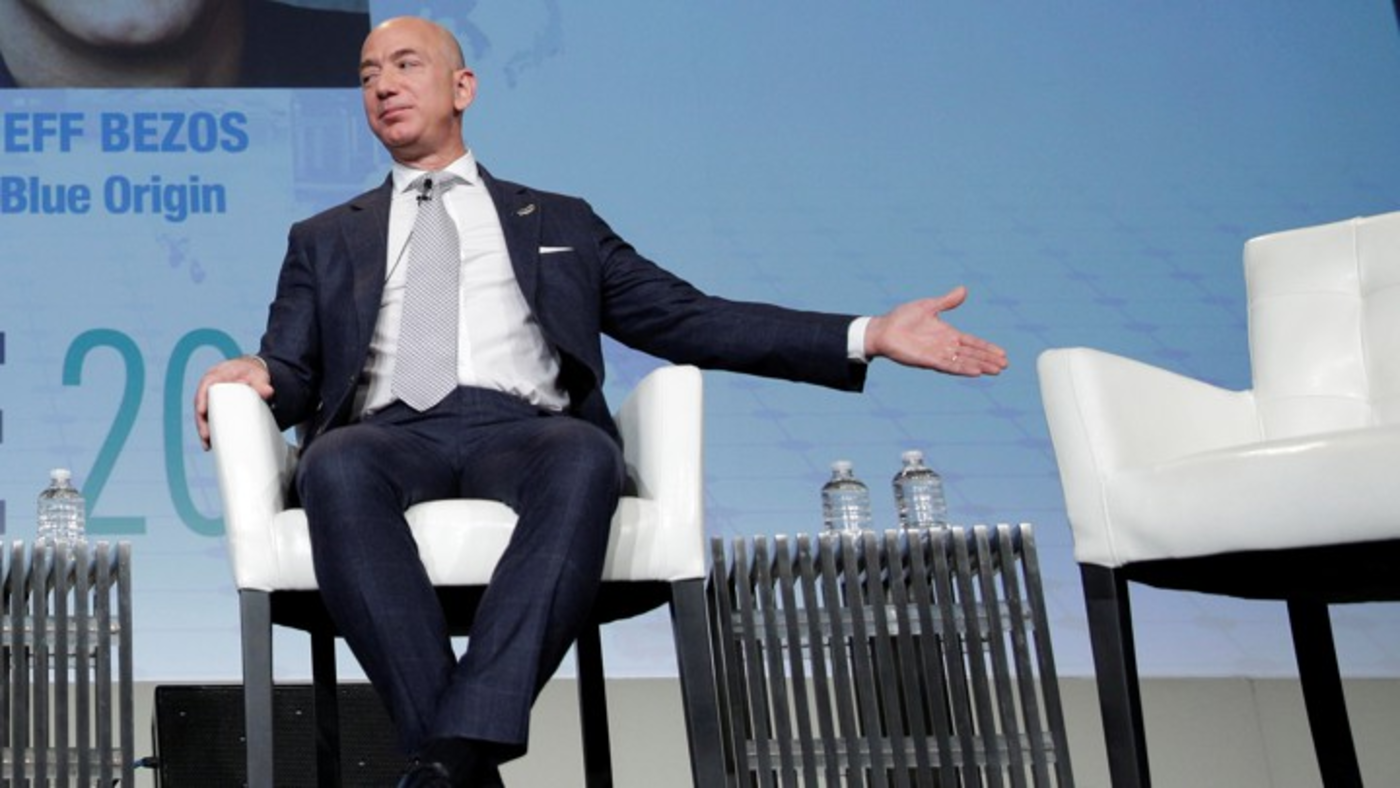The Atlantic: Jeff Bezos’s $150 Billion Fortune Is a Policy Failure
"Last month, Bloomberg reported that Jeff Bezos, the founder of Amazon and owner of the Washington Post, has accumulated a fortune worth $150 billion. That is the biggest nominal amount in modern history, and extraordinary any way you slice it. Bezos is the world’s lone hectobillionaire. He is worth what the average American family is, nearly two million times over. He has about 50 percent more money than Bill Gates, twice as much as Mark Zuckerberg, 50 times as much as Oprah, and perhaps 100 times as much as President Trump. (Who knows!) He has gotten $50 billion richer in less than a year. He needs to spend roughly $28 million a day just to keep from accumulating more wealth.
This is a credit to Bezos’s ingenuity and his business acumen. Amazon is a marvel that has changed everything from how we read, to how we shop, to how we structure our neighborhoods, to how our postal system works. But his fortune is also a policy failure, an indictment of a tax and transfer system and a business and regulatory environment designed to supercharging the earnings of and encouraging wealth accumulation among the few. Bezos did not just make his $150 billion. In some ways, we gave it to him, perhaps to the detriment of all of us.
Noncompete agreements are another tool Amazon and other big companies use to suppress the costs of labor and to bolster their bottom lines, to the benefit of major shareholders. Amazon’s contracts have required employees to promise that they will not work for any company that “directly or indirectly” competes with Amazon for 18 months after leaving the firm. Given the breadth of the Amazon’s business, that means taking a job with Bezos might have meant turning down a future job not just at Walmart, but also at postal companies, logistics businesses, warehouses, and retailers. “Amazon appears to be requiring temp workers to forswear a sizable portion of the global economy in exchange for a several-months-long hourly warehouse gig,” The Verge, which reported on the contracts, argued. (Amazon said it does not currently have warehouse employees sign noncompetes.)...
...Such non-compete and no-poaching clauses used to be common only among executives and other high-income workers, but now roughly one in five workers are covered by them; more than half of major franchise businesses, like McDonald’s, include no-poaching agreements in their contracts. This suppresses wages by reducing competition for workers—and is now seen as one of several reasons wage growth has been so sluggish during the recovery.
Stripping workers of the right to move among employers is just one way that Amazon and other big businesses are flexing their monopoly and monopsony power—again with Uncle Sam helping companies at the expense of workers. Amazon’s dominance in e-commerce, particularly in markets like book-selling, has given it pricing power to squeeze both the companies it purchases goods from and its own employees. A recent study by The Economist found that Amazon opening a fulfillment center in a given community actually depresses warehouse wages: In counties without an Amazon center, warehouse workers earn an average of $45,000 a year, versus $41,000 a year in counties with an Amazon center. The data also show that in the two-and-a-half years after Amazon opens a new fulfillment center, local warehouse wages fall by 3 percent.
“In local labor markets that are highly concentrated, concentration contributes to lower wages,” said Sandeep Vaheesan, policy counsel at the Open Markets Institute, a Washington think tank that studies market competition. “Amazon wields a great deal of power over both its workers and its suppliers. Where Amazon distribution centers are located, especially in rural and more exurban areas, they are one of the powerful local employers and likely have a great deal of wage-setting power—and so they can depress wages below what would exist in sort of more competitive and less concentrated market.”
Finally, there is the decline of unions. Since its founding nearly three decades ago, Amazon has again and again sought to prevent the unionization of its workforce, a development that would likely bolster wages and improve working conditions. Amazon has reportedly shut down operations where workers were seeking to organize, fired employees advocating for unionization, hired law firms to counter organizing drives at warehouses around the country, and given managers instructions on how to union-bust. (It has denied retaliating against workplaces seeking collective bargaining.) At the same time, the government, in its regulatory bodies and the courts, has again and again sided against unions and in favor of business owners..."


